EU-China Trade: China Buys Time with Some Despair Until it Grows Enough in Other Markets.
Issue 139, Monday 1st April 2024
EU-China Trade: The Trends Behind the Numbers
Lots of reports will tell you about EU-China decoupling, de-risking, or whatever of the many buzzwords in use. Our conclusion, and you do not necessarily have to agree, is that
China buys time with some despair until it grows its exports enough to other markets.
Trend I
The EU is a crucial market for Chinese exports. For ten years, China has been growing its exports to the EU at a compound rate of more than 5%. For some of its cash-cow products (such as batteries, electric cars, photovoltaic cells, and e-commerce parcels), China won't find sizeable substitute markets quickly. It needs to buy time.
Trend II
The importance of China as an export market for the EU is decreasing compared to total EU exports. Over the past ten years, the EU has only managed to increase its exports to China by a compound rate of 2%. The EU's fatigue from unfulfilled promises by China is taking a toll. The EU has never truly penetrated the Chinese market. China's imports from the EU27, as a percentage of total Chinese imports, have remained flat at around 10% for the last decade
Trend III
The percentage of EU imports from China over total EU imports is decreasing. The average over ten years is that China supplies about 20% of the goods imported by the European Union. However, the 10-year trend is downwards. The EU, even if importing more than half a trillion dollar from China in 2023, has new suppliers elsewhere. Furthermore, the European Union is conducting various probes into unfair imports from China. Moreover, the disruption caused in trade by China's policies during COVID (in 2020, 2021, and 2022) has led supply chains to reconsider their reliance on China
Trend IV
Despite China's rhetoric, its interest in EU supplies is minimal. China primarily seeks commodities and raw materials that the EU does not possess, along with critical technology, which the EU is reconsidering whether to export to China. The EU's share of China imports has remained flat for a decade, and while China's nominal GDP growth was in double digits, it was worth the effort despite the hassles. However, with China's GDP growth now in single digits, it is no longer worthwhile for EU companies, specially for EU SMEs (which make the bulk of European Union economy)
The European Union Wines to China Plummet to Levels of 10 Years Ago
In 2023, exports by value were half of what the EU27 exported at its peak in 2017. It speaks volumes that the EU could not capitalize on the opportunity that arose following China's ban on imports of Australian wines
China's Lithium Fever
Lithium Carbonates Supplies
One of the key indicators concerning the production of batteries for electric cars. We present it for comparison
Overcapacity and Rants
The People's Daily published a rant against perceived criticism of the West regarding China's overcapacity. As usual with rants, it is drafted with a broad brush. It is a bit strange for a nation of astute and experienced sales people.
In ballpark figures, the total of China's exports is equivalent to about 19% of its GDP. We are sure that People's Daily knows that about one-third of such exports are aimed at just three partners: the EU, the U.S., and the UK, which we could consider as a sort of single client.
Surely, an experienced salesperson would pay attention to a client that generates one-third of its sales, especially if he or she realizes that sales to such a client are equivalent to a mere 2% of the client's income, and you are not as important as you might believe. The client might even consider that by pushing your overcapacity, you are actually exporting job losses to their company. Decisive stakeholders in the company may not like that.
New Cars New Problems
In the interconnected world we live in, monthly active users (MAU) are a metric used to measure the number of unique individuals who engage with a service or platform. We wonder if, in the near future, the popularity of a certain e-car model will be determined by its MAU (from one or more of the many apps embedded into the e-car) rather than by the traditional metrics found in ICE car magazines.
Trade-wise, it poses new problems. When crossing borders, billions of lines of code such as these might raise security concerns, and we're not referring solely to the safety of the passengers. Even if the vehicle itself is identical and homologated for two different countries, the legislation in those countries regarding the collection, transmission, and storage of information may be entirely different.
Breakdown of China's Car Exports (5 Years)
China's Gold Imports on Their Way to an All-time High
The song 'Gold that Always Shines' is a nice Chinese song frequently played in the listings of Chinese KTVs. We are afraid that the post-COVID frenzy of Chinese citizens for gold has other reasons, surely related to their confidence, or lack thereof, in the economy. The curious thing is that gold fever is often accounted for as consumption when, in reality, it serves more as a means to store savings.
In January and February 2024, gold was the most imported individual product by China, second only to crude oil.
RCEP as Replacement for EU in Chinese E-car Exports? Doubtful
RCEP increased its share as a destination in Jan-Feb, leading quite a few people to believe that RCEP can replace the EU in Chinese e-car exports. Frankly, we doubt it.
Imports of Beauty Products Decline
Competition from domestic products and changes in preferences among new consumers are forcing imports down. EU companies, along with South Koreans, are the ones feeling the pinch the most.
Forecast: China's Coal Supply Stable in 2024, Indicating a Significant Shift
China Files Complaint Against US at WTO
The document claims some US credits are contingent on the use of domestic over imported goods and discriminate against goods of Chinese origin. Observers are surprised by the complaint filed by a WTO member known for its massive use of subsidies, both obvious and hidden, throughout the entire supply chain.
In our opinion, the document clearly transpires China's main fear: the acronym FEOC or Foreign Entity of Concern. For example, an e-car will not qualify for credits if it contains any critical minerals that were 'extracted, processed, or recycled by a foreign entity of concern'
China Updates its Negative List for Trade in Services
Do not expect any surprises. For example, cross-border education or cultural services of any sort are not allowed.
Find the list here
Chinese Outbound Travel Fully Recovers Post-Chinese New Year 2024
With data post-Chinese New Year 2024, we can say that Chinese OUTBOUND travel is fully recovered
However, Still Waiting for Visitors to China
Data including Feb 2024
Three Years Have Passed
The Ever Given, a large container ship operated by the Evergreen Marine Corporation, became stranded in the Suez Canal on March 23, 2021. According to a Chinese study, Africa was more affected by the incident than Europe.
Báijiǔ: Internationalization Can Wait
Báijiǔ (白酒) is the preferred liquor of the Chinese. Its consumption dwarfs that of any other spirit. Despite some efforts, albeit not very persistent, it has never gained traction in international markets. Excluding shipments to Hong Kong and Macao, exports account for the equivalent of a couple of containers daily. In fact, báijiǔ exports are only about one-fourth of China's imports of French brandy, and half of the liquor exports go to neighboring South Korea
United States (10%), Japan (9%), the EU (6%), Australia (3%), Canada (3%), and Singapore (2%) absorb the rest of the small demand, mainly driven by the Chinese diaspora.
We always found somewhat contradictory that the most indebted provincial government in China is the majority shareholder of the largest báijiǔ producer, which also owns the most famous and successful brand.
That's all folks, see you next week!
You've reached the end of the newsletter, congratulations!
We are committed to sharing with you the best trade analysis we have to offer.
If you would like to share something with us, feel free to comment in the section below or drop us a line at soapbox.trade@gmail.com

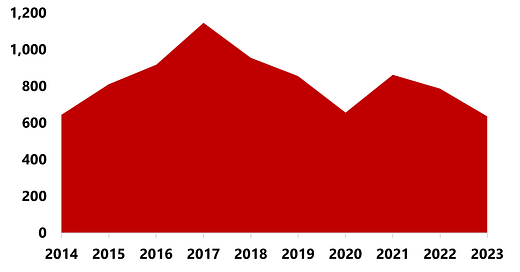


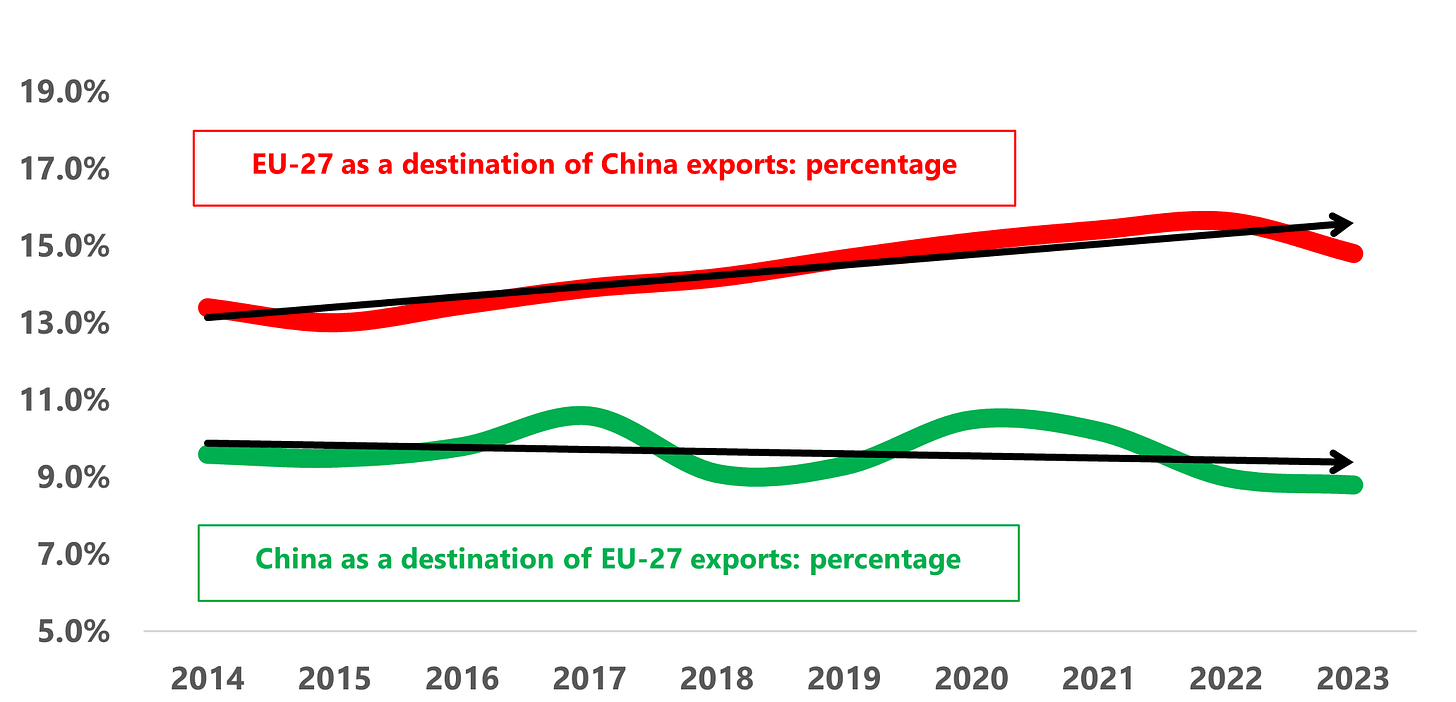
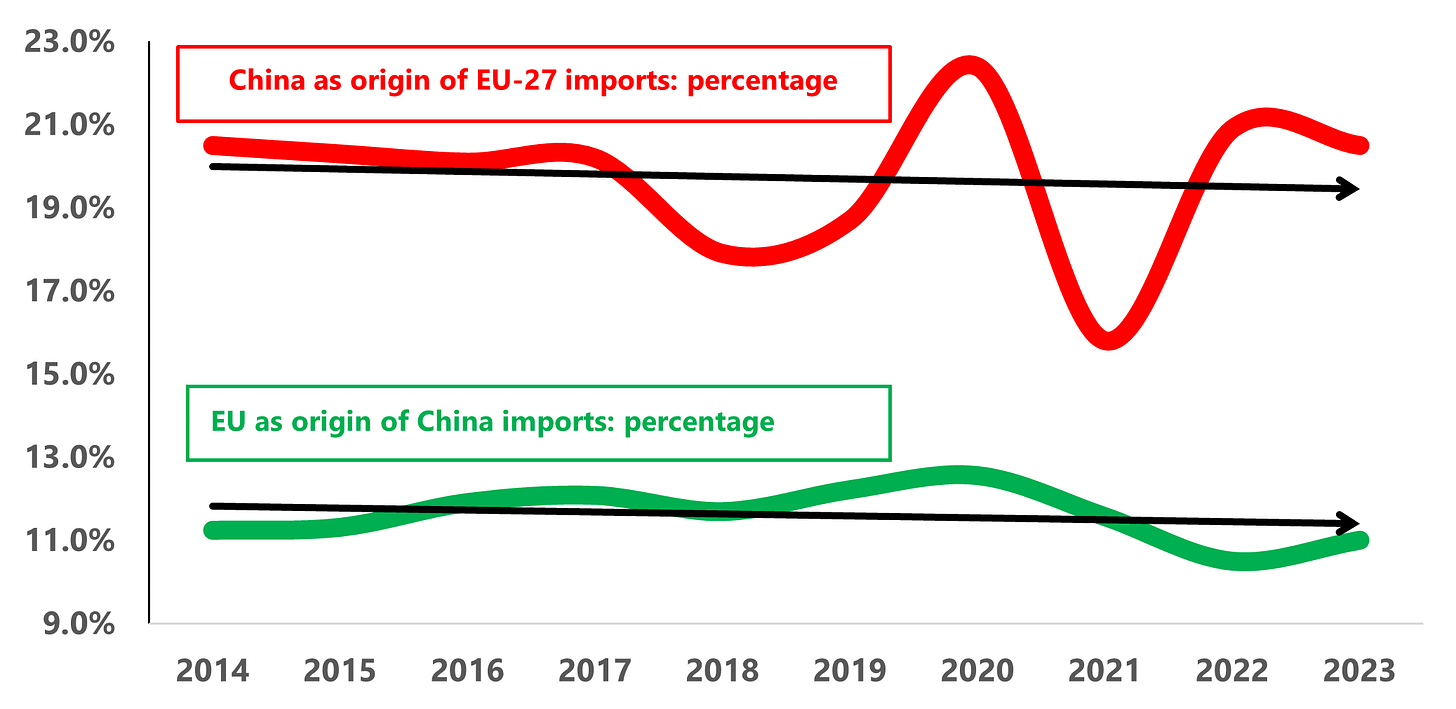

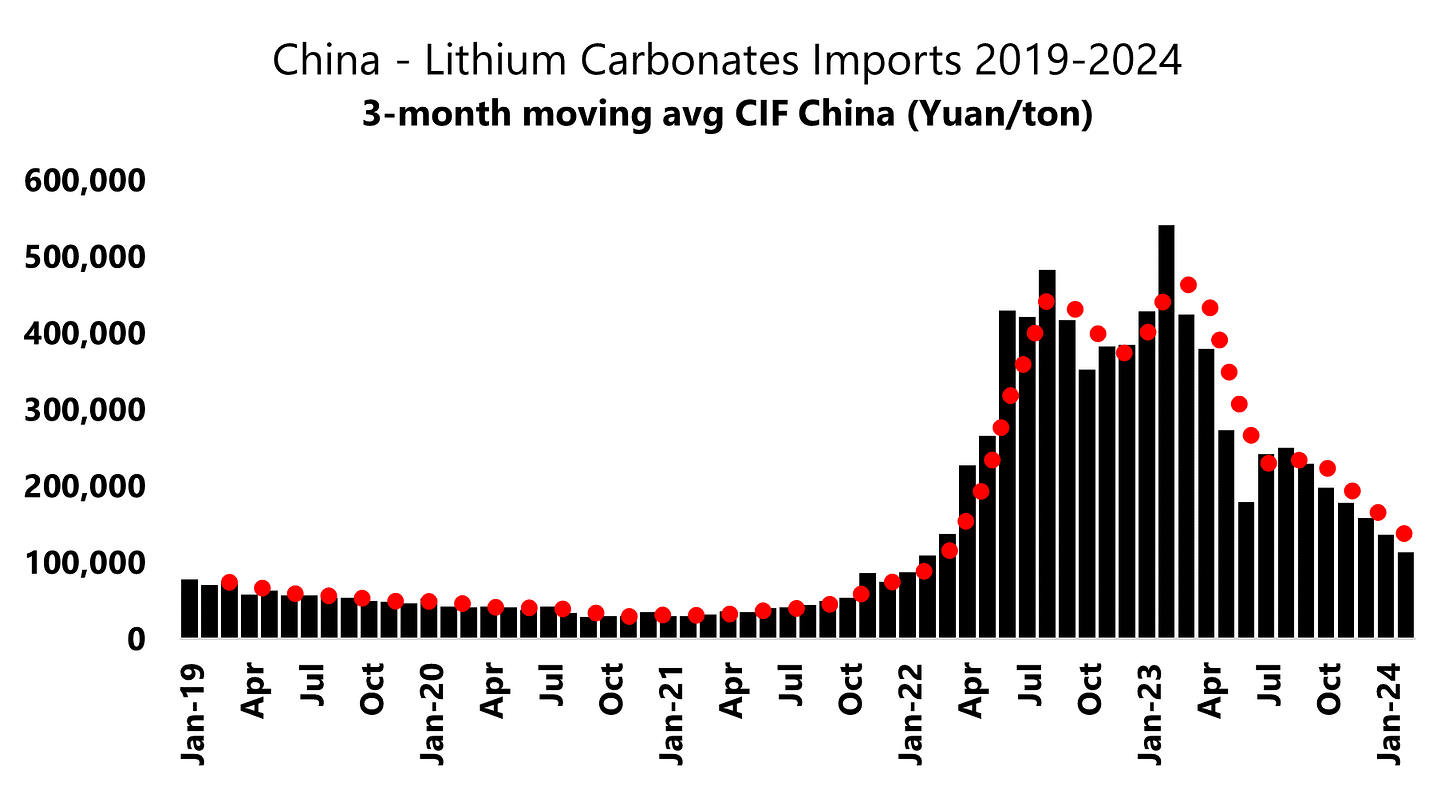
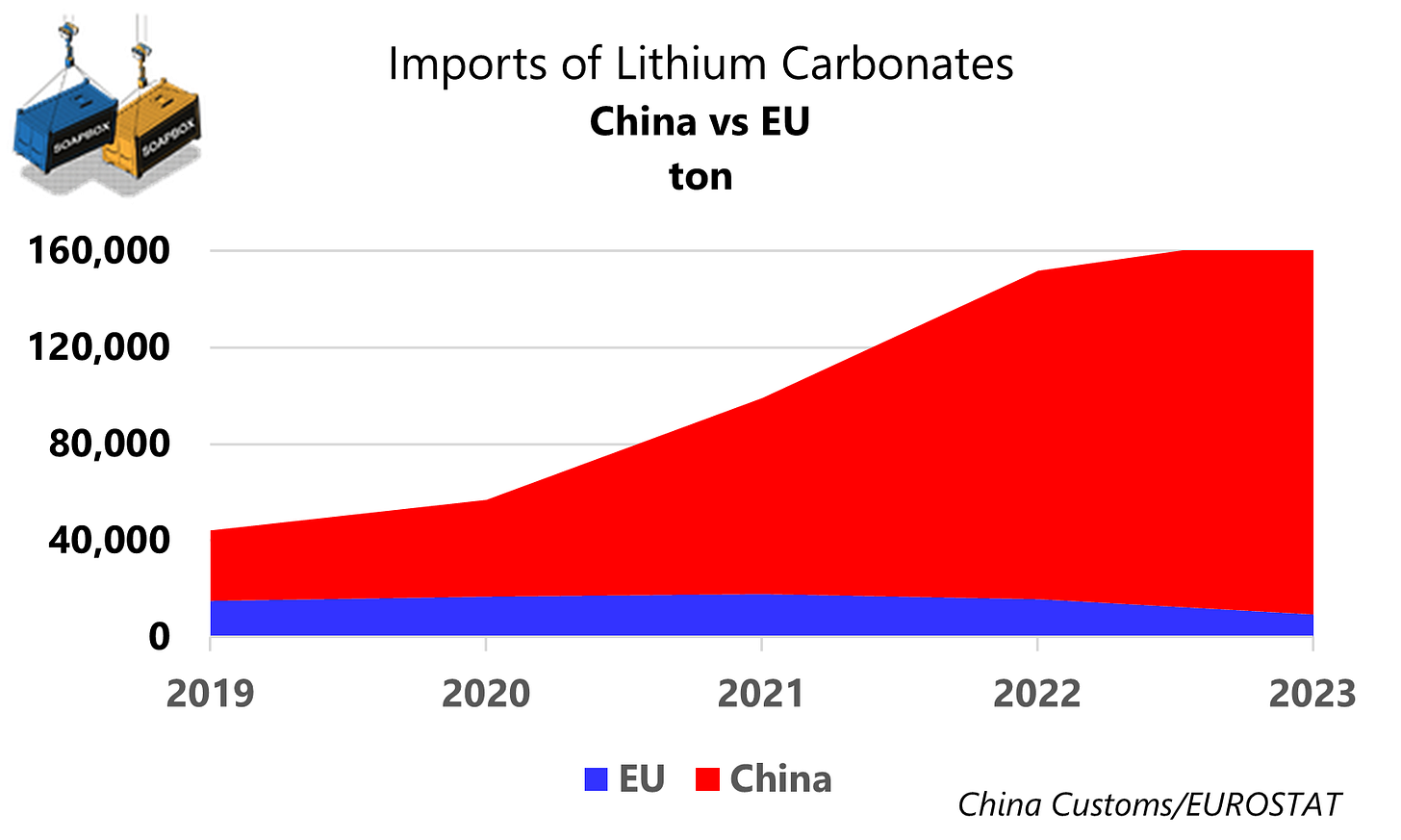
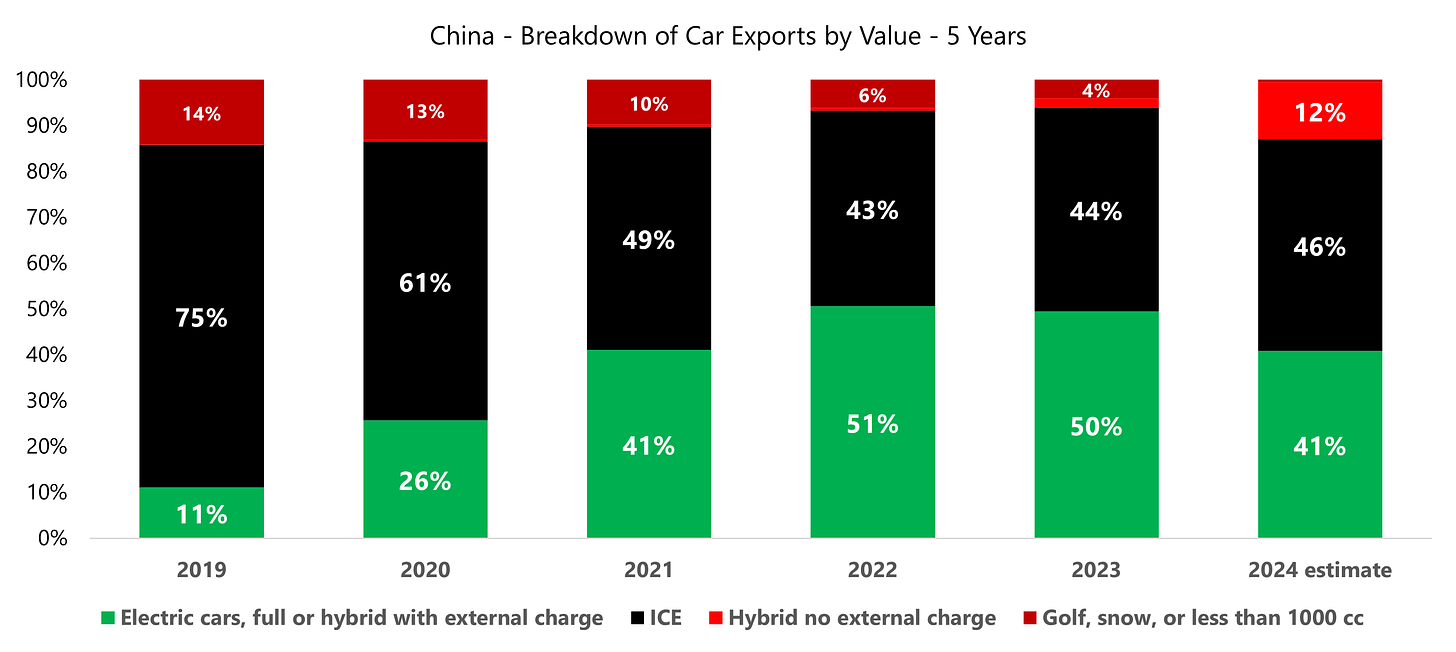
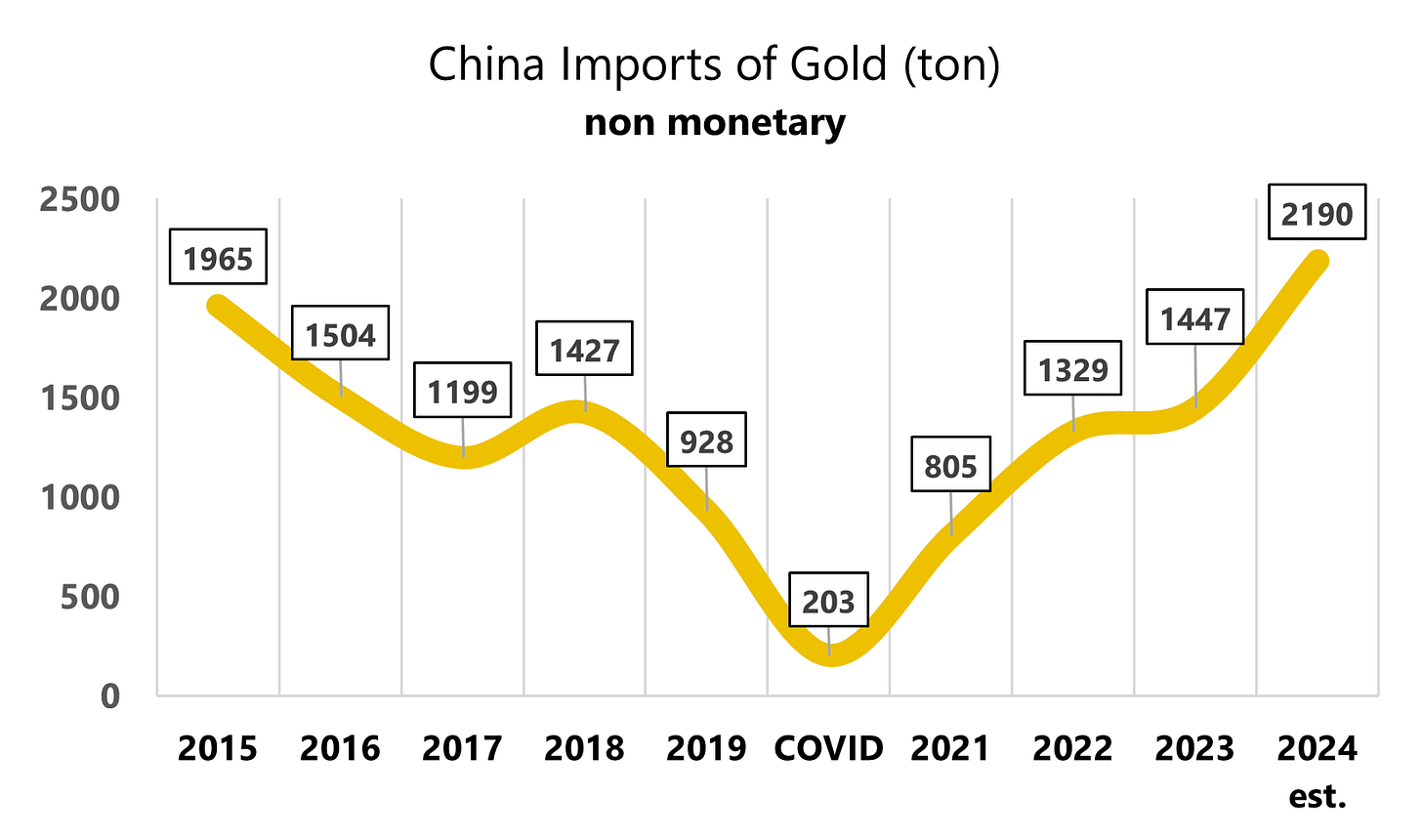
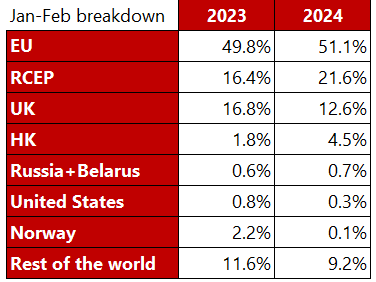
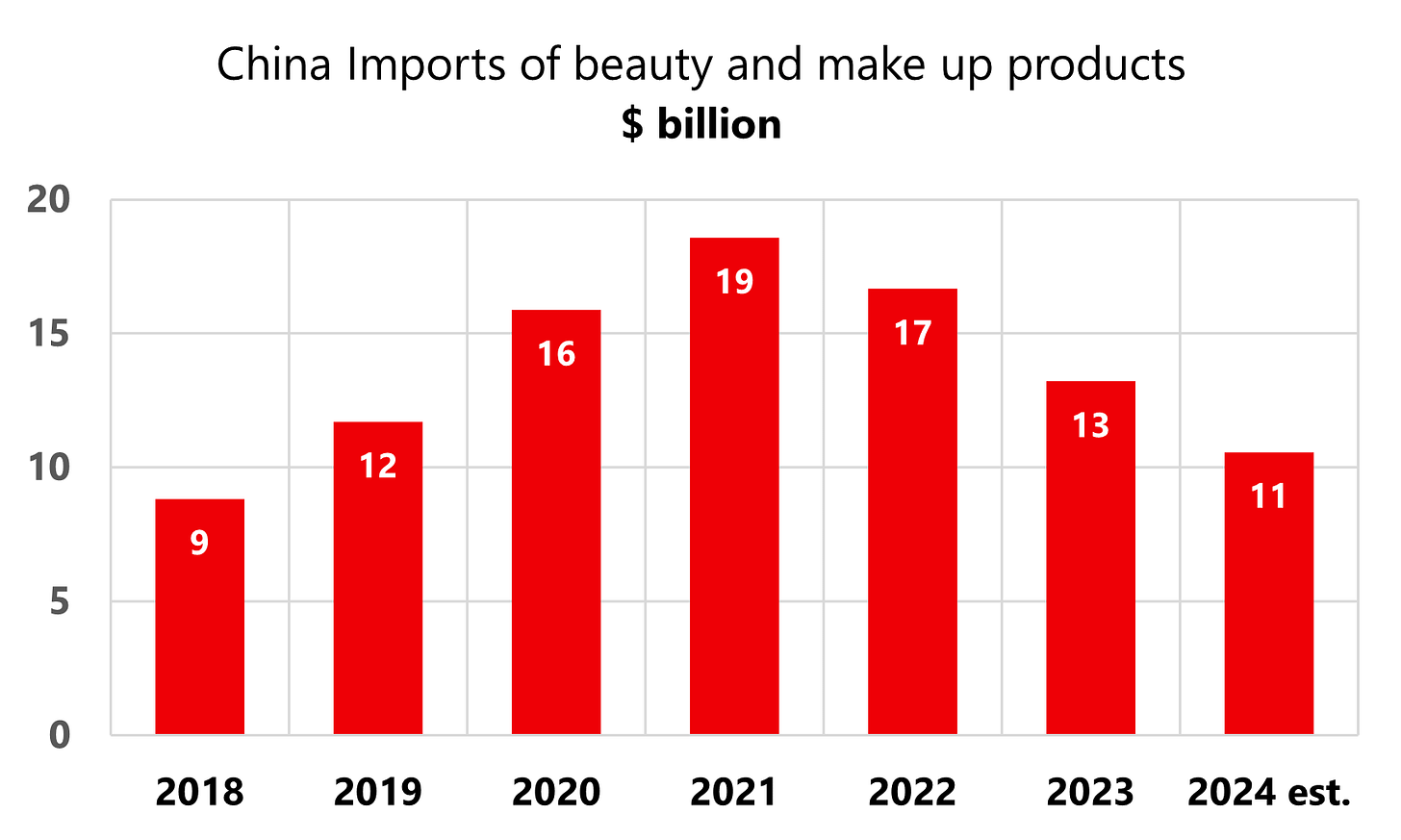

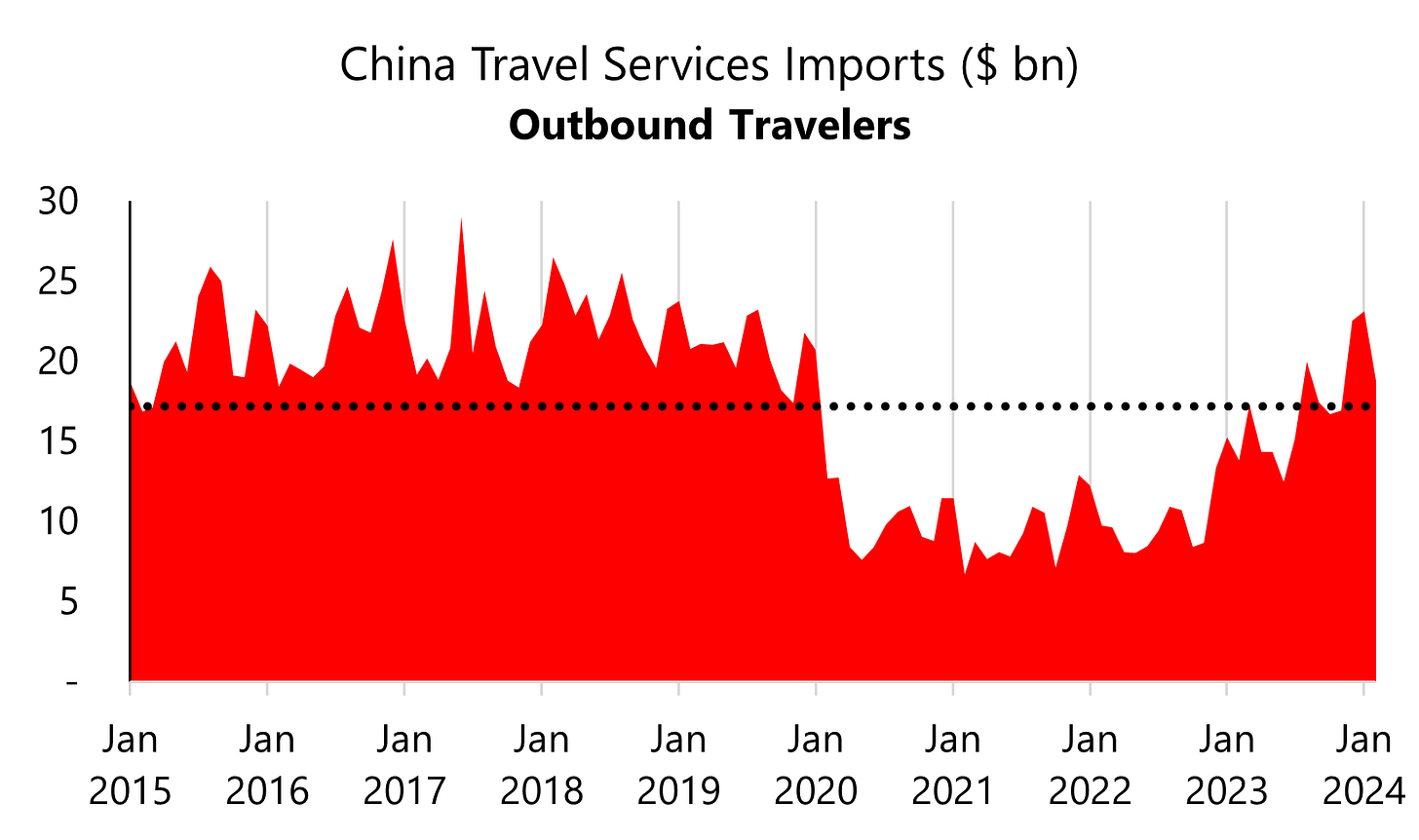

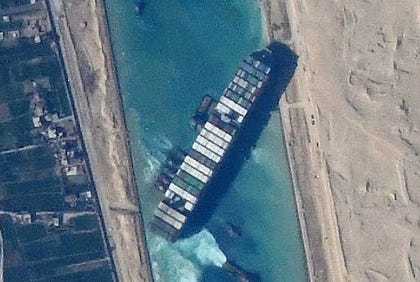
The statement "The EU has never truly penetrated the Chinese market" is very much in contradiction to that what you see in China: On the street (EU cars), in the supermarkets (EU consumer goods) and in the sky (EU aeroplanes).
For many EU products, it does not make sense (neither economically nor environmentally) to ship them around half of the globe to China, so EU-headquartered companies manufacture in China for China and increasingly beyond (RCEP, new silk-road, BRICS-countries).
To evaluate the economic importance of China for the EU, import/export figures are just one factor.